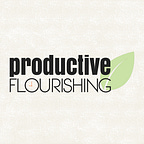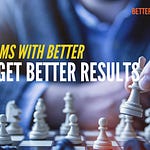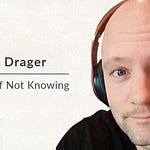Today’s guest is Bryce Bladon, author of Hell to Pay 2: Everything a Freelancer Needs to Earn Good Money, and editor-in-chief of Clients From Hell. He joins Charlie to discuss the differences between being an entrepreneur and a freelancer. So many creative professionals get stuck and confused because they are unsure about what type of business they’re building, and why they’re choosing that kind of business.
Key Takeaways:
[2:02] - Bryce thinks that freelancing is going to be the way of creative professionals in the future. Based on surveys conducted by the Freelancers Union, it is predicted that more than 40% of the US workforce is freelancing in some capacity. While it may take different forms, freelancing essentially means personal self-employment.
[3:23] - Is there a difference between an entrepreneur and a freelancer? A freelancer is typically selling skills or services in their one-person (for the most part) business, while an entrepreneur is usually trying to start a business that will grow and scale, and may possibly be interested in selling it. Historically, freelancing is the way most creatives were employed.
[6:01] - Now, we are seeing more of a renaissance of freelancing (and entrepreneurship), as some aspects of today’s workplace make it hard to employ really specialized talent. Advances in technology and changes in mindset have also given rise to many tools and platforms that are empowering for creators.
[9:25] - The defining difference for Bryce between an entrepreneur and a freelancer is how each business scales. While there is overlap - maybe the entrepreneurial spirit is in a freelancer, or the meaningful, personal touch may be there as an entrepreneur builds his business - the difference lies in what your ultimate goals are and how you see yourself doing this three or five years down the road.
[13:40] - Another big difference is that entrepreneurs typically take more financial risks, acquiring investors and hoping to gain profit. For a lot of freelance businesses, they are able to work on a smaller scale and get paid for the work they produce. Bryce talks about some of the lifestyle and work style differences between the two.
[15:43] - Charlie talks about how the nature of entrepreneurs and freelancers has changed, and how perhaps our definitions need to expand to include more types of businesses. There is some grey space between the two extremes of entrepreneurs and freelancers, where the term solo-preneur seems appropriate.
[20:05] - Labels aside, it all comes back to what you’re trying to do. There are different trajectories based on what your goals are. Once you determine what you’re trying to achieve, you can figure out what business models are going to work best for you.
[21:28] - There are some skills that a freelancer should have: some amount of marketing, business, and accounting skills would be helpful to help them promote and manage their services. These skills are arguably more important for entrepreneurs because they are usually trying to build a big business, and need a solid foundation to keep building up.
[24:08] - As you creative people think about your pathway forward, one way of thinking about it is specialist versus generalist. An entrepreneur needs to be a better generalist that thinks about several things at the same time. A freelancer will need to be a better specialist, that hones their skill to be better than whatever is out there.
[28:30] - Another big difference is that almost anyone can freelance in some capacity, but not everyone can become an entrepreneur, at least at the start. There needs to be an appreciation of the risks you’re going to be taking before you take them.
[30:00] - Many businesses start by selling a service, and this can sometimes morph into selling a product. Starting with selling a craft or a skill is something that most people can do. Building products around that requires a different skill set with a different mentality around it.
[36:24] - No matter where you are on the spectrum (entrepreneur, freelancer, solo-preneuer), most people’s first business either fails or is not the business that ends up being sustainable in the long-term. Where you start is very rarely going to be anywhere close to where you will be when that business matures.
[37:57] - The scale of risk that you might take when starting a freelance or service-based business is much lower than making a product and all that that encompasses.
[41:11] - Charlie and Bryce talk about how startup companies differ from many of the other freelance/entrepreneurial companies out there. It is not logical for all businesses to grow tenfold. You have to think about what makes sense for the individual business in terms of what you hope to accomplish. You need to be able to answer the question, am I building a business that I will want to be in in five years?
[43:16] - Many people get into the freelance business for personal growth reasons. Though they may not be more financially independent, they are enjoying a higher quality of life. The real payout for Bryce is the idea of independence, and what you can do with it, and how you spend your time with regards to the business.
[46:43] - The market and opportunities for freelancing are only getting better these days, and that’s a very exciting thing. Freelancing is a great vehicle for autonomy, mastery, and purpose. In some of the smaller companies that are emerging, you get an opportunity to have the freedom of creativity with the security of getting a paycheck. When you drop the six-figure expectation, you can find a balance of work that works for you, your clients, and your life and relationships at the same time.
[49:03] - Bryce’s challenge for listeners: Find and reach out to somebody who is doing something that inspires you or that you would like to do someday. Say something nice about what they’ve done and what it has done for you.
Mentioned in This Episode:












